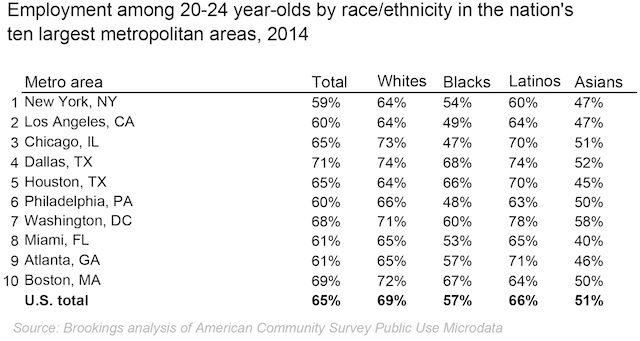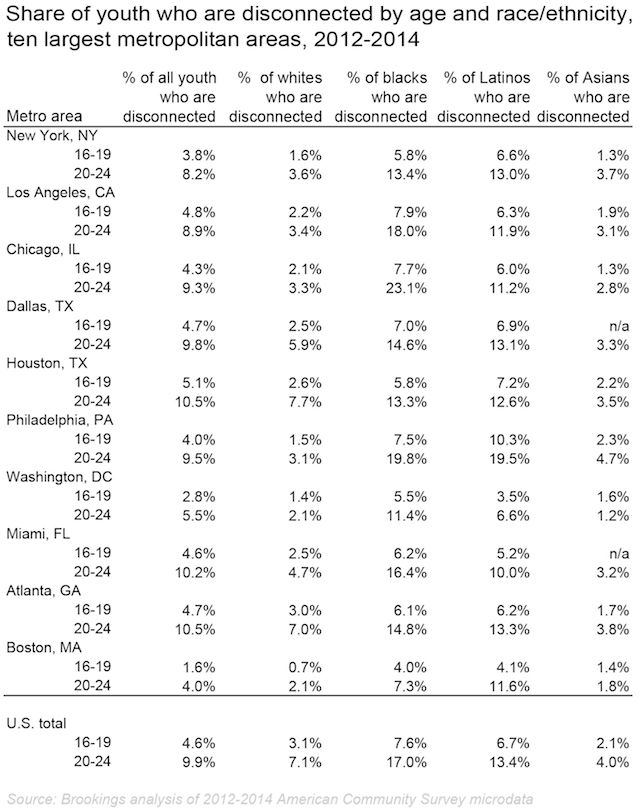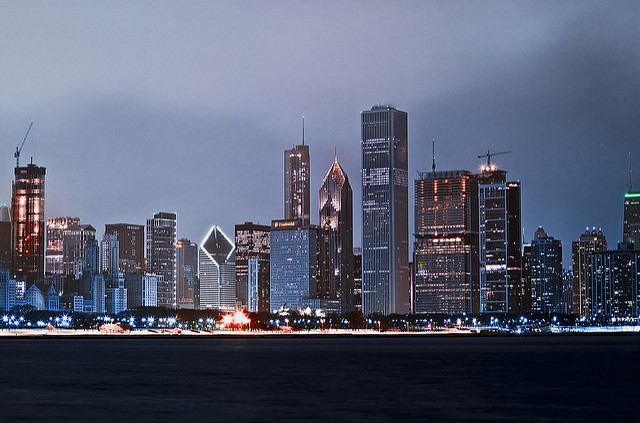Chicago Has One Of The Most Egregious Racial Employment Gaps In The U.S.
By Mae Rice in News on May 25, 2016 3:34PM
Chicago is an unequal city. It's visibly racially segregated; it's also segregated by community "distress," a catch-all metric that encompasses unemployment, poverty, vacant housing and more. (In fact, if you Google "segregated cities," "Chicago" appears in bold on a card at the top of the search results.)
Chicago is also unequal when you look at employment rates by race, and leave geography out of it. A new study that the Brookings Institute released Tuesday shows that in 2014, the gap between Chicago's white and black employment rates was 26 percent, the largest in any of the country's 10 biggest metropolitan areas.
White people in Chicago had an employment rate of 73 percent; black people of 47 percent. While Latino Chicagoans had an employment rate comparable to white people, the Asian employment rate was 51 percent, below the citywide average of 65 percent. (That's not unique to Chicago, though; it was true for Asians in all 10 of the cities studied.)

Brookings also found a racial disparity in the "disconnection" of young people in Chicago. A previous study looked at disconnection among young people in Chicago fairly broadly—measuring the number of young people who were not in school or working—and found a giant racial disparity there. Black people ages 20 to 24 were out of work and school at a rate of 40.9 in 2014; the rate for whites and Latinos in the same age range were 18.7 and 6.7 percent, respectively.
The Brookings study authors, Martha Ross and Nicole Prchal Svajlenka, looked at "disconnection" more specifically, though. They used 2014 data to measure the number of young people ages 16 to 24 with less than an associate's degree, living at below twice the federal poverty line, not in the army or in group lodging. They found that black Chicagoans ages 20 to 24 had the highest rate of disconnection of any demographic in the 10 cities studied.
The disconnection disparity between white and black young people was also the highest in Chicago of all the top 10 cities. Black people ages 20 to 24 are disconnected at an almost 20 percent higher rate than white people in the same age bracket, a differential unmatched in other cities (or even among younger Chicagoans).

Overall, the Brookings Study takes something most of us know about, or at least sense—entrenched racial inequality in Chicago—and places it in a national context. Yes, it really is that bad. No, it is not a coincidence that Chicago was central to Ta-Nehisi Coates' "The Case for Reparations."
[H/T the Tribune]
